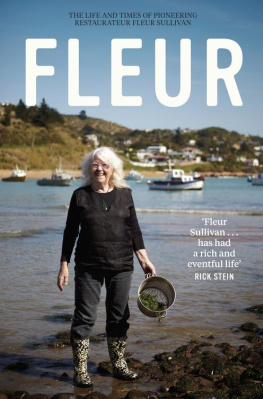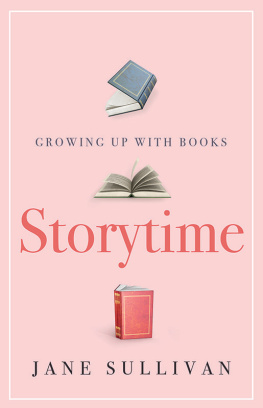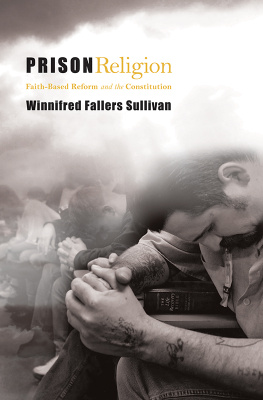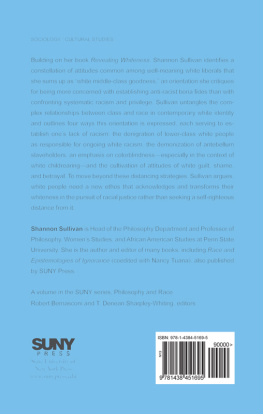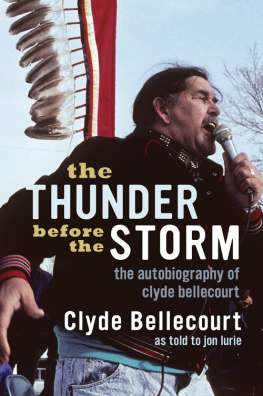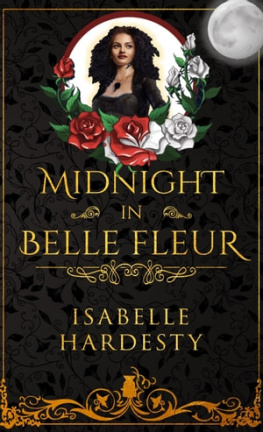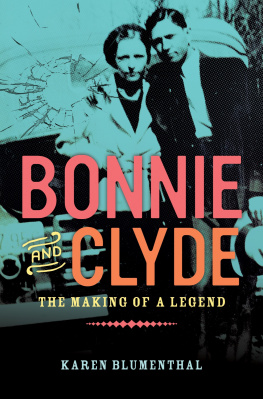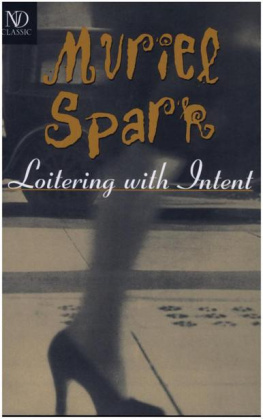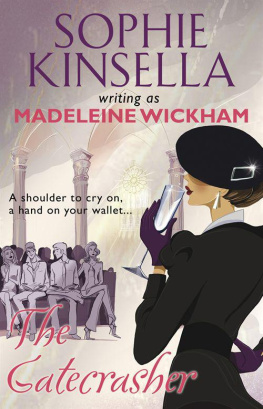In our house the hunting, gathering, growing and harvesting of food, the pickling, drying and bottling of food, the cooking, presenting and serving of food, were central to our lives. All our important family conversations took place around the dinner table.
While I was still a schoolgirl I began buying gorgeous old domestic antiques and kitchenware. These experiences defined my life as a restaurateur and Ive become recognised as much for the ambience I create as for the food I serve.
My family lived on my grandparents farm at Tawai on the Waitaki River, about 32 kilometres northwest of Oamaru, until I was about five years old. Eight individuals across three generations lived in the house actually, it was more like four generations because my grand father was 20 years older than my grandmother. The age difference was because there was no one his age to marry. He was the youngest of 13 children and because he was deemed to be delicate some of his brothers and sisters came to look after him when he married my grandma.
The house was a simple four-bedroom weatherboard place, which was not big enough to accommodate all those Henrys. My great-uncles, Mick and George we called him Uncle Goog spent their nights in austere one-room sleepouts, each with high ceilings and tongue-and-groove walls. We had two long-drops for the convenience of the extended family. Great-aunts Bunny and Ettie never married and so spent their lives caring for other members of the family. I remember Aunty Bunny best because she spent all her time at the farm and besides looking after flocks of turkeys she also looked after me she was my aunty. She was tall and thin and had pale, translucent skin. Like a very tall Mary Poppins, she wore her grey hair tied in a wee wispy knot on the top of her head, which she then covered with a shiny black straw hat. Aunty Ettie was shorter and more robust than Bunny. She did lots of baking for the family and was often away helping out in the homes of some of the other sisters and brothers.
My grandfather had lost most of his property during the Depression, so his farm was just a small block where he fattened sheep. I had a creek to explore, poultry to tend and ponies to play with. Eventually my younger brother and sister, Gerard and Swea, were added to the tribe.
My brother was about 10 years old when Grandad told him that because he was the boy he would inherit the farm when he grew up. This seemed quite normal to my sister and me. When our great-aunts gave us children an orange or an apple the top would be sliced off for my sister, the side sliced off for me, and my brother would be given the rest. We would get him outside, take it off him and I would divide it evenly among us. Sometimes he was given a glass of beer; we never were.
My father, Bill Henry, and his brother were drovers who brought sheep from all over Otago to my grandads farm where they fattened them before they were sold. During the war Dad was manpowered to the woollen mills in Oamaru where he worked as a wool classer. He had a second job too, delivering coal at night. When he filled out the census hed put down his occupation as wool scourer and his religion as atheist. Mum, whose name was Noreen, would get really wild with him because being a wool scourer was not as impressive as being a wool classer. And as for being an atheist! That would really get her mad. He wanted to improve himself so Mum bought him a huge dictionary and he read it every night to increase his vocabulary.
Several of my grandfathers brothers lived on the road that led to Tawai School, where I had the first year or so of my schooling. No one in the family moved too far away.
My grandparents were like Jack Spratt and his wife: my grandma ate the fat and Grandad ate the lean. Grandmas name was Julia but the children all called her Doodie. Grandad and his family were tall, thin people from Northern Ireland whereas Doodie was short and wiry and had a disposition that my grandad called bog Irish. They fought like mad but he never wanted to argue as much as she did. Doodie was fiery and she ran the show. Grandad would just say, Youd know, Julia. Youd know, and that made her really mad. The whole atmosphere at home in the early days was boisterous and lots of fun.
My grandparents taught me the meaning of hospitality. It didnt matter how many or who came to visit, they were always welcomed and fed. My mother was hospitable too, but in a more reserved way. Shed never say come to the table to unexpected guests. She would have invited five people for a meal and that would be it; if someone else came to the door they wouldnt be invited in. In contrast, my grand parents welcomed everyone in and the food was abundant.
Our meals were cooked on the coal range in the tiny scullery at the back of my grandparents house; every day we would race around gathering bark off the blue gums to fuel the fire. Across the yard from the scullery, under two huge plum trees, was a long wooden building with three doors. Behind one door was the pantry with its shelves of bottled fruit and flour bins, the next one led into the laundry with its big copper, concrete tubs, home-made bars of soap and blue bags, and behind the third door were the stacks of wood and coal.
We ate and relaxed in the room next to the scullery. It had a small fireplace and a big, brightly polished mirror above the mantelpiece, which was covered in a lace-edged cloth and cluttered with ornaments. There was another room reserved solely for eating Christmas dinner.
Looking back, I can see that we ate exceptionally well throughout my childhood. Food and its preparation were central to the lives of the adults around me. It wasnt something I thought of as unusual; we never went to other kids houses for tea so I had nothing to compare it to.
The adults kept a big poultry run and an ample vegetable garden with fruit trees and bushes of berries and currants. As children we were never squeamish about where our food came from. Rabbits were shot; chickens and turkeys heads were cut off. Turkey wasnt just a Christmas treat, it was everyday food. Dad caught salmon and trout regularly and we children caught freshwater lobsters out of the creek and boiled them on the bank together with the eggs wed sneak out of the henhouse.
I still remember all the wonderful smells from the cooking and the meals. The food we had was plain and plentiful. My grandmother cooked eggs, bacon and chops for breakfast, or sometimes porridge with brown sugar and a blob of butter in the middle. Aunty Bubs, Dads sister, who married a Scotsman, put lots of salt in her porridge but no butter and sugar; it was a surprise to learn that other people made porridge in different ways.

